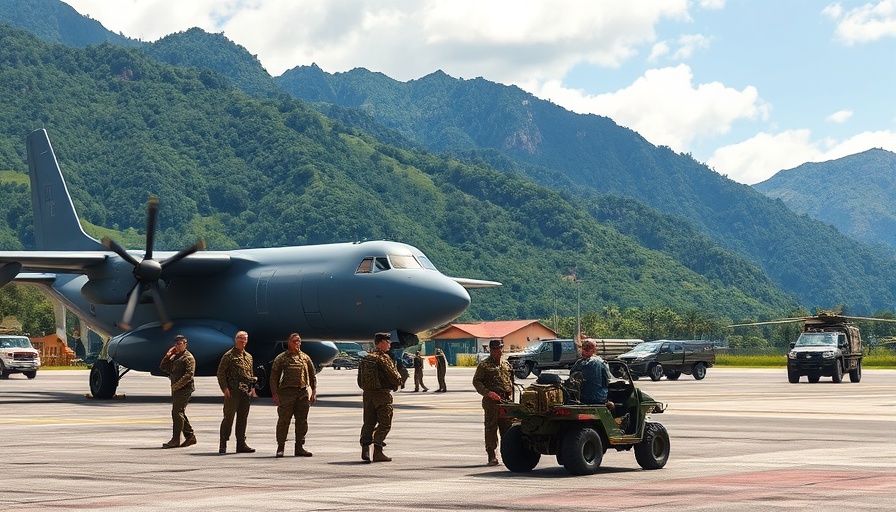
Understanding the Current U.S. Military Actions in the Caribbean
The recent escalation of U.S. military actions in the Caribbean has raised significant concerns, not only about the legality of these strikes but also about their potential impact on U.S.-Venezuela relations. Since September 2, the Trump administration has conducted several strikes against boats allegedly involved in drug trafficking, with the White House designating them as 'terrorist organizations.' However, critics argue that these actions could have serious legal implications and that the justifications provided by the administration fall short of legal standards, particularly those outlined in the War Powers Act.
Legality and Justification for Military Actions
On October 6, 2025, in a narrowly divided Senate vote, Republicans blocked a Democratic attempt to limit President Trump's authority to undertake military actions without Congressional approval. This rejection came on the heels of reports that the strikes have resulted in the deaths of over 20 individuals. Senator Adam Schiff warned that such unilateral military actions could inadvertently lead the U.S. into a broader conflict. Existing U.S. law stipulates that only Congress has the power to authorize military force, except in cases of self-defense.
Historical Context of U.S. Involvement in Latin America
The U.S. military has a controversial history in Latin America, often involving unauthorized actions that led to destabilization in various countries. Many lawmakers and legal experts express concern that the administration's current approach mirrors patterns from past military interventions that resulted in long-lasting conflict. Critics, including Republican Senator Rand Paul, have raised questions about the effectiveness and legality of using lethal force without clear evidence of wrongdoing.
Concerns Over Escalation in Military Operations
{@articleTitle} raises fears that the current military policy could evolve into a more extensive conflict, especially given indications that the Trump administration may be preparing for potential military actions directed at the Venezuelan government. With President Nicolas Maduro labeled as illegitimate by the U.S. due to ongoing accusations of drug trafficking and corruption, the administration is at a critical juncture that could lead to intensified military engagement.
The Need for Congressional Oversight
The stark political divide in Congress about these military actions reflects deeper issues surrounding the balance of power in national security. The rejection of the resolution by the Republicans highlights a willingness to support an administration's aggressive military posture, despite pushback from within their party. Both Senator Murkowski of Alaska and Senator Paul have indicated that they believe both tradition and legality compel Congress to play a role in military decision-making.
Future Implications for U.S.-Latin America Relations
The ramifications of this ongoing military engagement are profound. They extend beyond legal debates and impact diplomatic relationships in the Western Hemisphere. Latin American leaders, already sensitive to U.S. interventions, may grow increasingly resistant to U.S. influences. The current approach, framed by some as a 'war on drugs,' could potentially overshadow necessary discussions about humanitarian aid, economic stability, and collaborative counternarcotics efforts that address systemic root causes.
Taking Action: Why You Should Stay Informed
It is essential for citizens, especially those in the U.S., to stay engaged in discussions surrounding military actions and their implications for both national security and foreign relations. As members of Congress deliberate on these important issues, public pressure and feedback can play a crucial role in shaping a lawful and effective response to the challenges posed by drug trafficking and international relations.
 Add Row
Add Row  Add
Add 




Write A Comment